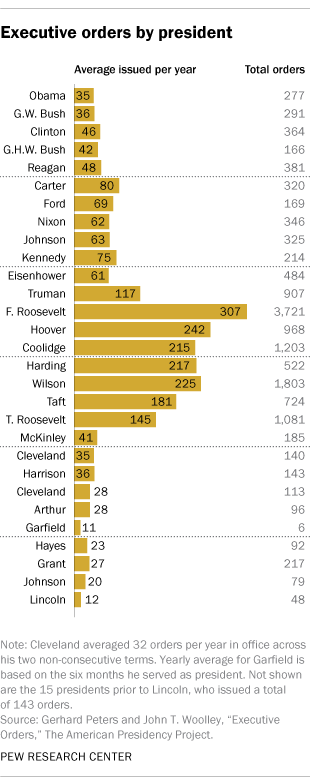Executive orders need extreme vetting
February 20, 2017
Executive orders can change the lives of countless people in the U.S. by signing a single document. With that in mind, President Donald Trump should exercise better judgment when signing these orders, as many people, including NIU students, can have their lives turned upside down in an instant.
On Jan. 27, Trump signed an executive order halting immigration from seven Muslim-majority countries in the Middle East and Africa. Chaos and confusion immediately erupted at airports across the nation.
By signing that executive order, the president highlighted the problems that can arise if that power is not used responsibly.
A presidential executive order commands a specific federal agency to take some sort of action. These orders are legally binding, provided they pass constitutional scrutiny, according to a Jan. 26 CBS News article.
“They can’t create new laws,” said Scot Schraufnagel, associate professor and chair of the Department of Political Science. “But what they do is they interpret existing laws.”
Undocumented students here at NIU have been impacted by the use of executive orders, specifically the Deferred Action for Childhood Arrivals order signed by former President Barack Obama in 2012, according to a Feb. 6 Northern Star article.
A double standard
One of the biggest issues Republicans had with Obama was what they perceived to be his heavy-handed use of executive orders. This resulted in former Senator Jeff Sessions — now Attorney General — referring to Obama as an “emperor,” according to a Jan. 26 NBC News article.
“A lot of conservative commentators criticized the Obama administration for writing a lot of executive orders,” said Schraufnagel. “But if you look back, Obama wrote relatively fewer than some of his Republican predecessors.”
Interestingly enough, while Republicans were angered by Obama’s use of executive orders, they have been quiet regarding Trump’s usage of them. The hypocrisy is laughable.
What is puzzling, though, is why Trump is relying so heavily on executive orders when Republicans have control of Congress. In theory, this control of Congress should afford him the luxury of getting key pieces of legislation passed.
Executive order chaos
On the campaign trail, Trump made many promises to the American people, including building a wall along the Mexican border as well as immigration reform. He decided to fulfill some of those promises through executive orders.
The most controversial of these executive orders was the travel ban that halted refugee entry into the U.S. for 120 days and immigration from seven Muslim-majority countries for 90 days, according to a Jan. 27 White House press release.
That executive order was short lived, as a federal judge in Seattle issued a temporary restraining order on the travel ban Feb. 3 while the legal and constitutional merits of the executive order are reviewed. One of the arguments is whether the executive order is rational under the due process clause, according to Robert Jones, associate professor of law.
“That’s kind of a startling argument because it’s very rare that the courts would say the government isn’t rational,” said Jones. “The way it was done, how quickly, the way it’s been implemented, the lack of justification for it seems to have convinced the court that it’s quite possible that there was no real purpose for it other than discrimination.”
While I respect the president’s ability to issue executive orders and his desire to tighten our borders, this particular course of action seemed reckless. Immigration is an issue that needs to be addressed, but this was not the way to do it.
“There’s a question of what is lawful, what is constitutional and…what is good policy,” said Anita Maddali, director of clinics for the College of Law and associate professor of law. “This order was fairly broad, and there wasn’t much notice, so that created a lot of uncertainty for people who had the expectation that they could come back into the U.S. … There was a lot of chaos.”
While I may not agree with his politics, I understand that signing executive orders is a power afforded to the president. I would simply encourage him to be mindful of that power and take greater care and consideration when signing future orders.
As the “Not From There” Undocumented four-part series in the Northern Star points out, the signing of executive orders can have far-reaching consequences. I do not want any of our fellow students to undergo the same heartbreak and disappointment so many people faced after the travel ban executive order was signed.
I encourage the president to carefully consider the ramifications and have future orders vetted by a legal team before he opts to whip out his pen and possibly create even more havoc the next time he decides to fulfill a campaign promise. We deserve better.







